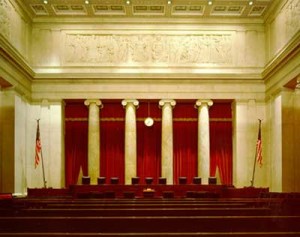The Supreme Court ruled 5-4 along ideological lines Monday that home-care workers in Illinois do not have to pay dues to public employees unions.
 The opinion by Justice Samuel Alito was a narrow loss for organized labor. It did not overrule the court’s “agency shop” precedent applying to all public employee unions.
The opinion by Justice Samuel Alito was a narrow loss for organized labor. It did not overrule the court’s “agency shop” precedent applying to all public employee unions.
The challenge to the mandatory union dues, brought by eight home-care workers in Illinois, represented the biggest labor case to come before the court this term — putting at potential risk the future viability of public employee unions.
For decades, the law has allowed unions to collect dues from all private or public employees they are required to represent. Those who object don’t have to contribute to political or lobbying activities, but they must chip in for the unions’ efforts in fighting for better wages, benefits and working conditions.
The home-care workers in Harris v. Quinn served individuals with disabilities through the federal-state Medicaid program. They argued they should not have to pay dues for the state’s contract with the Service Employees International Union, even though the union is required to represent them and they benefit from its services.
The workers, who were represented in court by the National Right to Work Legal Defense Foundation, contended that public employee unions are engaged in lobbying the government, often on issues the workers oppose. That implicates their First Amendment rights because the union speaks for them.
Supreme Court issues narrow ruling against labor unions